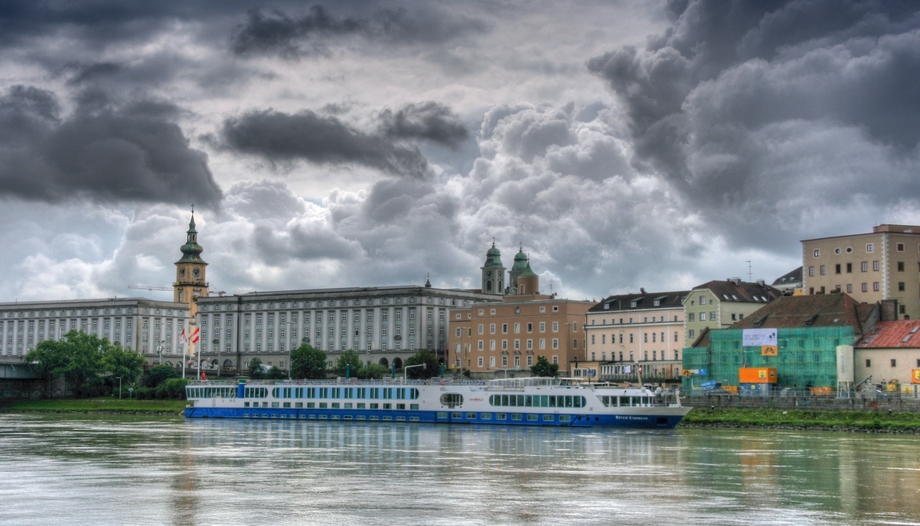In October 2023, the first session of the general assembly of the Synod of Synodality was held in Rome; the second session will be held in October, also in the Eternal City. In preparation for this second session, 43 representatives of European local churches met from August 29-31 in Linz, Austria.
Among those present were Archbishop Gintaras Grusas, president of the Council of European Bishops' Conferences (CCEE), his deputy Ladislav Nemet, and the presidents of the Italian, Austrian and Swiss Bishops' Conferences, as well as Beate Gilles, secretary general of the German Bishops' Conference.
Also present were eight of the ten European participants in the synod who, without being bishops, have the right to vote, such as Helena Jeppesen-Spuhler, Thomas Söding, Myriam Wijlens and Thomas Schwartz. The document was presented by Riccardo Batocchio, special secretary of the Vatican Secretariat for the Synod.
Nostalgia, clericalism and transparency
The sessions were held in seven language groups (German, English, French and Italian) of six people each. Klara Csiszar, dean of the Private Catholic University of Linz and a key figure in the preparation of the meeting, emphasized that "a good mix of bishops and lay people, men and women, as well as participants from Western and Eastern Europe" had been achieved. The work followed the method of the world synod, with private discussions and moments of spiritual reflection.
Although no joint statement was issued, the reports of the groups stressed the importance of avoiding nostalgia, fostering collaboration between the churches of Eastern and Western Europe, and seizing the "ecumenical opportunity" in Europe. It was also stressed that Catholicism must be lived "in breadth," with humility and openness to the world, recognizing that Europe is no longer the center of the Church, although its "heart" remains in Rome.
Participants suggested overcoming "clericalism" - understood as meaning that only clerics should lead the Church - without taking authority away from priests and bishops, promoting subsidiarity and consultation, and developing "new ministries" such as spiritual counseling.
The importance of formation, accountability and transparency was also emphasized, although it was noted that the latter can be problematic in countries where the church is persecuted. The issue of women was considered "essential to maintaining the credibility of the Church."
European Ecclesial Assembly
Following the meeting, Thomas Söding, vice-president of the Central Committee of German Catholics (ZdK), published an article in the theological journal "Communio", in which he proposes a "European ecclesial assembly" to promote synodality in Europe, inspired by initiatives in South America.
In the article he writes: "There is still no solid platform where different experiences and answers can be discussed and where one can look at one's own situation through the eyes of others. There will be no answers with eternal value, but we need forms of dialogue that avoid suspicion and harm in order to create understanding and solidarity."
In an interview with "Vatican News," Söding stressed the need for more synodality in the Catholic Church in Europe, with regular meetings of broad participation, including lay people and bishops. These meetings, he said, are crucial to bridge cultural, social and political differences within Europe and support the path toward Church reform.
This last interview took place during the ZdK's visit to Rome, which was attended by its President Irme Stetter-Karp, Secretary General Marc Frings, as well as Vice Presidents Claudia Nothelle and Thomas Söding himself. For the ZdK it was a matter of "understanding Rome and being understood by Rome".
Dialogue on abuses
ZdK members met with Msgr. John Joseph Kennedy, secretary of the Dicastery for the Doctrine of the Faith as responsible for canonical punishments for perpetrators of abuse, with the experts on the protection of minors, and with the experts on the protection of minors. Hans Zollner Markus Graulich, undersecretary in the Dicastery for Legislative Texts until the end of August.
At the end of the meeting, in an interview with the German Catholic news agency KNA, Stetter-Karp gave a positive summary: "The tensions between the Synodal Way and the Vatican have probably not been completely resolved, since they do not go away simply by talking. But wherever we have been able to talk openly with our partners, mutual understanding has increased." According to the ZdK president, the "systemic approach", i.e. "what needs to be changed in the organization of the Church to deal with and prevent abuse and its cover-ups", is not generally recognized in the Vatican, "but there are similarities of thought with the two interlocutors mentioned," Zollner and Beer.
German Synodal Way
Irme Stetter-Karp considers that, after this visit, "in Rome they understand better than before what our motivation is in the synodal journey. Before, they were informed by third parties; now they have spoken directly with us. And I believe that the climate has changed and that they have recognized us as Christians committed to their Church".
Although the ZdK speaks of an "official trip" of this organization to the Vatican, the truth is that the representatives of the ZdK have not held any "high-level" meetings in the Vatican dicasteries. Zollner left the Pontifical Commission for the Protection of Minors in March 2023 and was appointed consultant to the Office for the Protection of Minors and Vulnerable Persons of the Diocese of Rome. Fr. Graulich has been replaced as undersecretary in the Dicastery for Legislative Texts on September 1.
No statement has been made by any Vatican body regarding these meetings.








